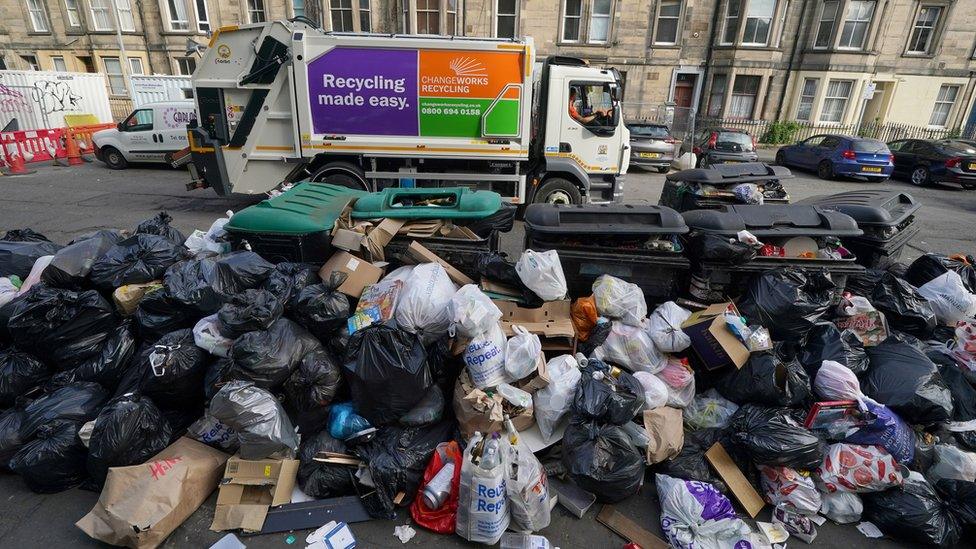GMB members accept new pay deal after council strikes
- Published

Bin strikes were halted last month following a fresh pay offer
Members of the GMB union have voted to accept a new pay deal following strikes which led to rubbish piling up on Scotland's streets.
Refuse workers and non-teaching school staff paused strikes last month to consider the improved offer.
More than 20,000 GMB members have now accepted the deal following a two-week consultative ballot.
Unison and Unite have recommended that their members also accept the deal with announcements expected next week.
The deal will deliver a flat rate increase of more than £1,900 for all workers earning less than £39,000 a year, based on a 36-hour working week.
The increase is being backdated to 1 April.
GMB Scotland senior organiser Keir Greenaway said members accepted the offer "by a clear majority".
"We are now calling on councils to ensure this consolidated increase is put into the pay and conditions of members as soon as possible, because the cost-of-living crisis hasn't gone away," he said.
"This must also be a point of reflection rather than relief for political leaders. Tens of thousands of low-paid workers were kept waiting months for movement on a decent pay offer in the grip of soaring inflation and eye-watering energy bills. That's unacceptable and can't be repeated next year.
"GMB is clear that after years of cuts to pay and services, this must be the start of the story in the fight for proper value of our key workers, because this period of intense economic pressure is going to last years and not months."

Rubbish piled high after refuse workers went on strike in August
Bin strikes began in Edinburgh on 18 August after unions rejected an initial pay offer equivalent to a 3.5% increase.
The action escalated when workers at a further 20 local authorities walked out despite a revised 5% offer, with further strikes planned.
Non-teaching school staff in 11 council areas had also been due to go on strike for three days.
However, that industrial action was called off after the new offer was made.